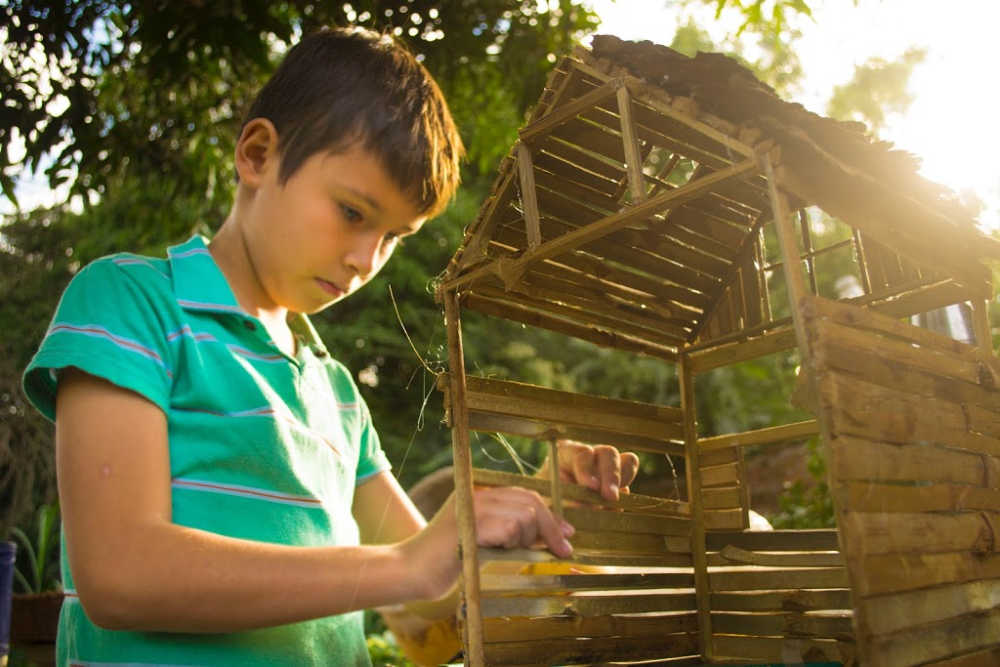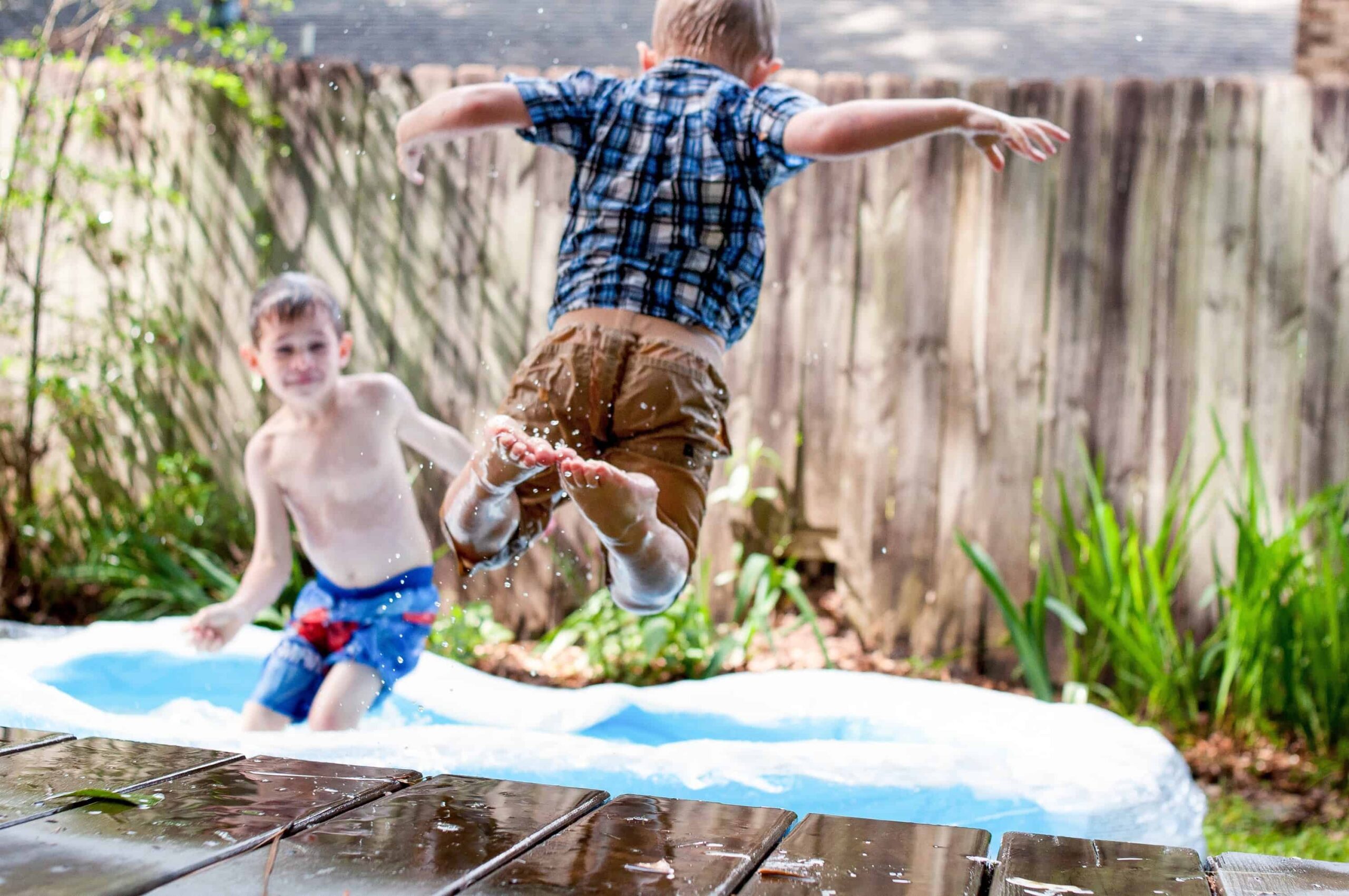Table of Contents
- What Does a Highly Sensitive Child Look Like?
- The Unique Brain of Highly Sensitive Kids
- Highly Sensitive or Sensory Processing Disorder?
- How Does Sensitivity Affect Kids?
- Your Highly Sensitive Child at Different Ages and Stages
- All About Emotional Regulation
- How To Parent a Highly Sensitive Child
- Parenting as a Sensitive Person
- Sensitivity is a Superpower
Is your child emotional, reactive, shy, empathic, cautious, and sensitive to sensory stimuli?
If so, you may have a highly sensitive child.
Sensitivity is too often seen as a negative thing. “Stop crying,” “You’re being silly,” and “Just go and play” are phrases that highly sensitive kids hear all too often. But what if we changed the way we looked at our sensitive kids? Instead of seeing misbehavior, tantrums, and reticence, what if we saw creativity, empathy, and thoughtfulness?
Learning how to parent a highly sensitive child isn’t about teaching them how to be less sensitive. Rather, it’s about helping them understand how their brain works and giving them the tools to self-regulate and thrive, regardless of the situation.
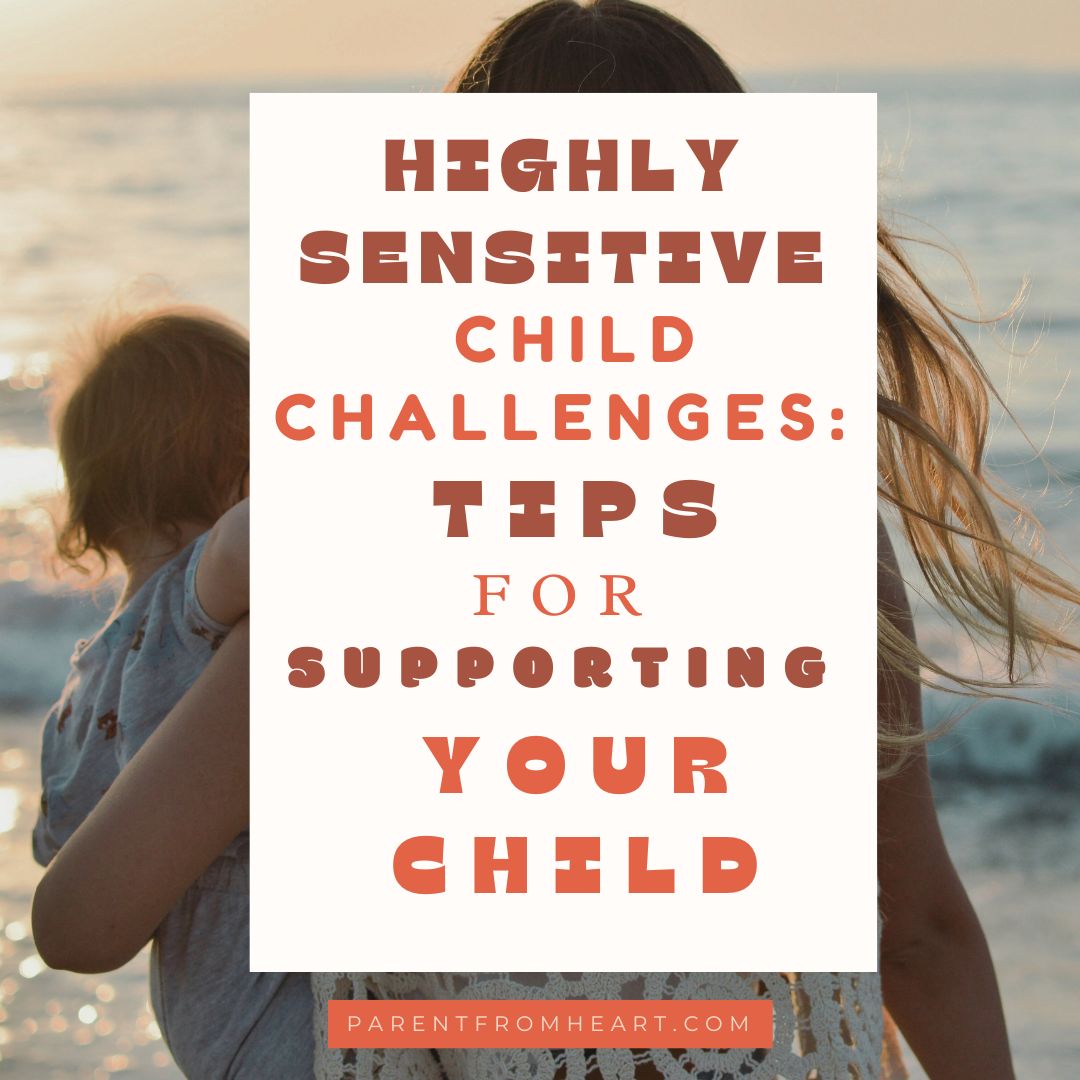
What Does a Highly Sensitive Child Look Like?
I had a baby who cried inconsolably, hardly slept, and had colic. As a toddler, he didn’t just push boundaries; he jumped right over them and ran for the hills. As a 7-year-old, he is determined, empathetic, resourceful, and affectionate. He also asks a million questions, usually just before bed!
I didn’t think I would survive those early years when meltdowns (mine and his) were a daily occurrence. But then I discovered the work of Elaine Aron, and her sensitivity self-quiz helped me see the emotions and sensitivities behind my son’s behavior. Now, I understand that his brain is wired differently, and I have to parent him differently than his brother. We don’t have the same meltdowns because I respond instead of react, and he is learning to regulate himself.
Raising a highly sensitive child can be intense, but it is also rewarding beyond measure. My son has helped me see the world differently, and I am a better mother because of the challenges we have faced together.
Being sensitive can look different for each child based on their environment, but there are a few traits that are common in highly sensitive kids.
Highly Sensitive Child Traits
Kids are born with their temperament, and sensory processing sensitivity is a biological trait, not a disorder. There is nothing wrong with your child! They just experience and process things differently.
Emotional Extremes
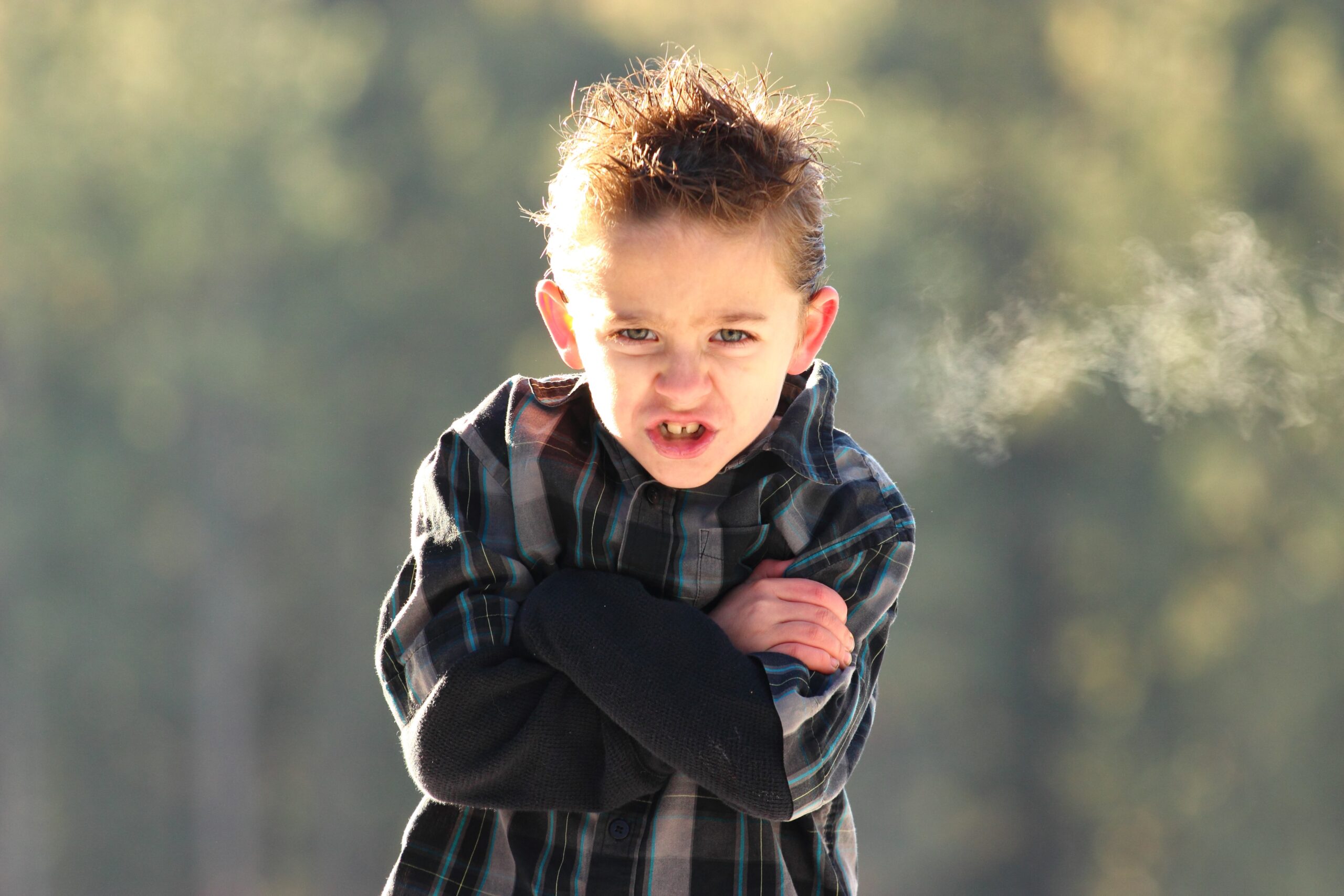
Highly sensitive kids react to experiences more deeply and struggle to find a “middle ground.”
Whether positive or negative, they react more intensely to situations, making them more responsive to others and their surroundings. That means your child may get excited or have major meltdowns about seemingly insignificant things.
Sensory Struggles
20% of people are highly sensitive or have Sensory Processing Sensitivity. Have you noticed that your child is particular about how their clothes feel? Or are they a picky eater? It’s possible they struggle with loud noises.
Highly sensitive kids have bigger reactions to sensory stimulation. That could be sights, sounds, tastes, smells, and textures. For example, my son hates the smell of the car in the morning and refuses to wear underwear.
Sensory sensitivities can also feed into each other. For example, if your child is tired, they may struggle with loud noises more than usual. Or if they have had an over-stimulating day at school, they may have an after-school meltdown if you ask them about their day.
Busy Brains
Does your child ask loads of questions and expect honest answers? Highly sensitive kids are curious and insightful. They are “processors” and take time to think and mull things over.
They also have fantastic memories, so don’t be surprised when they remember that you said you would jump on the trampoline “later.”
Need Control
A good memory is a coping mechanism that helps your sensitive child know what to expect in different situations. As your child is overwhelmed by a situation, they become bossy and controlling. They need to exert external control to help calm their inner turmoil. If you have ever stress-cleaned, you will understand that controlling things in your environment can help you feel less stressed.
Because your child needs control to feel safe, they may be inflexible and rigid when faced with new situations. They may even have a meltdown when plans change unexpectedly, or they face a challenge. For example, my son has to know what is in his lunchbox each day so he knows what to expect at snack time.
Fearful and Cautious
New situations can be challenging for highly sensitive kids. They can be self-conscious and may analyze the situation before getting involved. Sensitive kids are prone to anxiety and separation anxiety.
They are shy and may be slow to make friends, particularly at a place like the park where there are a lot of other kids. It’s like sensitive kids have a built-in risk assessment radar that they use when they find themselves in a new and uncertain scenario.
Perfectionism
Sensitive kids struggle with the loss of control they experience when they don’t do something exactly right. They take failure personally and don’t like losing. You may find they struggle with competitive games and have emotional outbursts when things don’t go their way.
Your sensitive child might also have a low frustration tolerance. Because they don’t like to fail, they may give up on something when it gets tough. Grit is crucial for success in life, and highly sensitive kids may need more help fostering grit and resilience.
Empathic
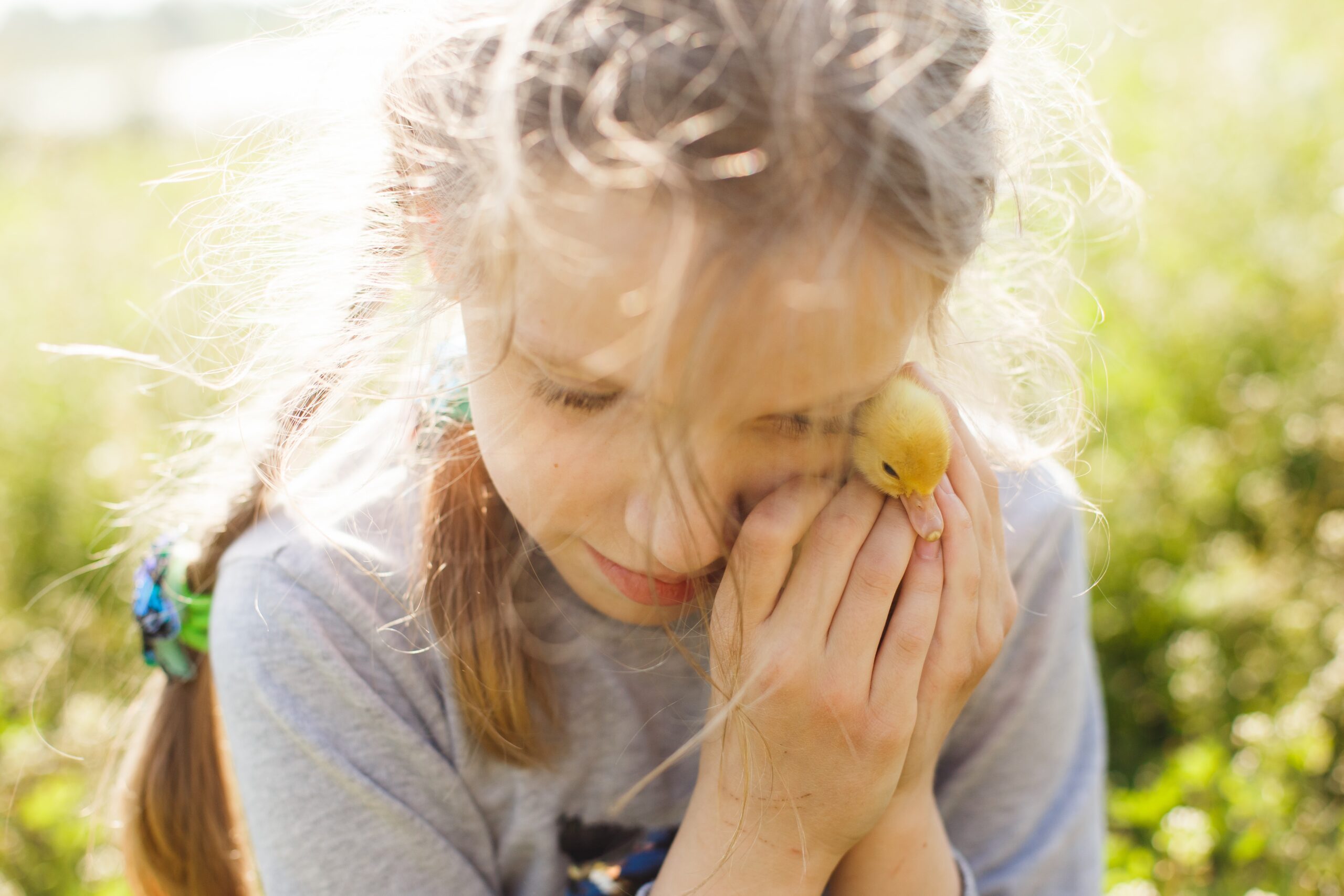
Your sensitive child has an enormous capacity for empathy. They notice small details around them and pick up on people’s moods. They have an uncanny ability to read people and are sensitive to their thoughts and feelings. Sometimes, though, other people’s emotions can be overwhelming because they take them on as if they were their own.
Self-Conscious
Highly sensitive kids tend to take things personally and can be very self-conscious. For example, my son slipped and fell in a muddy puddle after some serious swan lake moves to avoid it. We all laughed, not at him, but at the situation. My son got incredibly upset and embarrassed. We have since learned that he is way more sensitive to perceived ridicule than we realized.
The Unique Brain of Highly Sensitive Kids
The brain of a highly sensitive child is wired differently. They often have a hyperactivated nervous system, affecting how they react to situations and process experiences.
Their brain works harder because they process deeper and for longer. The cingulate is an integral part of the limbic system and controls many of our emotions. The prefrontal cortex is responsible for rational thought and is also the area that helps us process moment-to-moment input from our surroundings. The cingulate and prefrontal cortex are more strongly activated in highly sensitive kids.
Fight or Flight Mode
When your sensitive child has to make a difficult decision, their brain gets flooded with information and emotions. It’s like a sensory overload that makes decisions challenging. Because the limbic system is activated strongly in stressful situations, your child may experience a stress response.
The amygdala signals your child that they aren’t safe and activates fight-or-flight mode. That is why kids with sensitivity issues may have a meltdown because their nervous system is dysregulated, and their body is flooded with adrenaline and cortisol.
Mirror Neurons
Mirror neurons help us respond to the actions of others. They are associated with “intention understanding,” which helps us understand what is being done and why. Mirror neurons are an important component of empathy and are more active in a sensitive brain. That means your child will be excellent at reading people, judging their moods, and responding to their emotions.
Dopamine
The highly sensitive child has a brain that responds differently to dopamine. Dopamine is a neurotransmitter that is associated with rewards and motivation. It’s the “feel good” hormone that links pleasure with a specific behavior.
Sensitive kids are less affected by dopamine, which makes them less likely to be motivated by external factors. Dopamine is released to help combat stress when the nervous system is activated, but your child is less likely to respond to it, which makes kicking them out of fight-or-flight harder. Researchers have also found variants in the dopamine receptors of highly sensitive kids.
Highly Sensitive or Sensory Processing Disorder?
Sensory processing sensitivity is part of your child’s temperament. Sensory processing disorder (SPD) is a neurological disorder.
SPD
When kids have SPD, their brain is disconnected from the information it needs for sensory processing. Sensory signals are either not detected, or they are disorganized.
Children with SPD can be hyposensitive (under-responsive) or hypersensitive (over-responsive).
Hyposensitivity:
- Show little to no reaction to stimuli
- May constantly seek sensory input through vigorous play, loud music, or movement
Hypersensitivity:
- Struggle with loud sounds, bright lights, textures, and smells
- May have problems with coordination, movement, and balance
Kids with SPD have a consistent response to stimuli regardless of the situation. They may have the same response to a trigger as a highly sensitive child, but the root cause is different.
High Sensitivity
Highly sensitive kids have a sensitive nervous system, and it is a personality trait and not a disorder. Sensory processing sensitivity is situational. Sensory signals are heightened but not disorganized.
How Does Sensitivity Affect Kids?
Highly sensitive kids can thrive with support, but they may still find some situations more challenging than other kids.
Your Highly Sensitive Child and School

Highly sensitive kids can find aspects of school a challenge. Classrooms have bright lights and loud noises, which can be overwhelming. They are also prone to acting out when they’re uncomfortable or embarrassed.
Sensitive children are reactive to criticism, real or perceived, and can be emotionally overwhelmed from having to manage their own feelings and the feelings of their classmates. You may find your child has after-school meltdowns.
But, when they have a supportive school and home environment, they can learn how to manage their anxieties.
With the right tools and support, highly sensitive kids can:
- get better grades
- develop strong moral attitudes
- achieve high levels of social competency
- develop effective self-regulation strategies
Your Highly Sensitive Child and Friendships
New situations and making friends can be tricky for sensitive children. They don’t like to feel rushed and prefer to observe new situations before engaging. My son will often take ages to warm up and only start playing and enjoying himself a few minutes before we need to leave. He wants to play but is reluctant initially and is very clingy.
Highly sensitive children often prefer one-on-one play over large groups, which can feel daunting. They may also choose imaginative games over ones that are aggressive or competitive.
Your Highly Sensitive Child at Different Ages and Stages
The traits of a highly sensitive child may stay the same as they grow, but as they get older, they can regulate their responses better.
Highly Sensitive Toddlers
Navigating the toddler years is challenging enough without adding sensory issues. Many toddlers are clingy, picky eaters who throw tantrums when they don’t get their way.
But sensitive kids take the usual toddler tests to the next level. You may find your child isn’t just a picky eater. They may let you know forcefully (and messily) that they don’t like how a particular food smells or feels in their mouth.
They may be particular about how certain fabrics feel on their bodies. I remember numerous fights with my toddler about wearing a jacket. He didn’t like the feeling of layered clothing, and it is something we are still working on years later.
Many sensitive toddlers also have nightmares and struggle with the idea of shadows and monsters under the bed. Our brains process emotions and experiences while we sleep. Because your toddler can’t verbalize how they are feeling, the process of working through experiences can be scary.
The Middle Years
A lot happens during the middle years, and your sensitive child is forced to adapt. They transition to “big school,” which brings numerous sensory triggers and challenges. You may notice they are shy and reluctant to participate in extracurricular activities.
Because they feel emotions so vividly, your child may be labeled a crybaby or struggle with angry outbursts. Schoolwork is also more demanding, and they may get anxious about homework and projects.
Most kids ask a lot of questions as they grow, but highly sensitive kids ask more. You will find yourself having in-depth discussions about all sorts of things, and your Google search history will be interesting, to say the least.
Highly Sensitive Teens

Like toddlerhood, the teen years are a rollercoaster for your sensitive child. Teenagers work predominantly from their amygdala because the prefrontal cortex doesn’t fully develop until 25. That means they are super emotional and reactive. Add a dose of sensitivity, and you have a superstorm of emotions.
Your teen may struggle with relationships as they try to discover who they are. You may also have some conflict because they are very sensitive to perceived criticism and are extremely self-conscious.
Sensitive teens are deep thinkers and will need a lot of alone time, particularly after school. Sleep is another crucial factor, as they need time to process their experiences and emotions.
All About Emotional Regulation
A large part of helping your sensitive child deal with challenging situations is giving them the tools they need to self-regulate.
We have 8 primary built-in emotions.
- Anger
- Sadness
- Fear
- Joy
- Interest
- Surprise
- Disgust
- Shame
Secondary emotions are linked to our primary emotions through experiences. That means our reactions to our kids’ feelings are critical.
Be Aware
You can’t help your child learn about their feelings if you aren’t aware of them. Slow down and be present when your child is talking to you. Take note of their body language. Their non-verbal cues often tell you more about their emotions than what they are saying.
Validate
You may not understand what your sensitive child is experiencing, but it’s crucial that you don’t dismiss their concerns. They need you to connect with them and validate what they are feeling. Remember, sensitive kids are good at reading people, and your child will know when you are flippant or dismissive.
Listen
Active listening is a powerful tool that will help you connect with your child and help them learn a valuable skill.
Sensitive kids don’t like to be criticized; if you offer advice, they might take it as criticism. When your child is upset, the best thing you can do is act as a sounding board. Paraphrase what they say, let them problem-solve, and work out their feelings without your input.
Label Emotions
Your child may often be so overwhelmed and overstimulated that they don’t know what they feel. Use an Emotion Wheel to help your child label their feelings. Not only will naming the feeling give them emotional literacy, but it will also give them insight into how their internal experiences are linked to external actions.
Teaching Your Highly Sensitive Child Self-Regulation

Self-regulation is the ability to manage your emotions and behavior. You have to model and teach self-regulation and then help your child practice it. When highly sensitive kids can regulate their emotions, they can be more responsive and less reactive in triggering situations.
Use scaffolding, a framework that helps your child cope with challenging situations. For example, spend a few minutes at the park each day, allowing your child to observe the situation. Gradually encourage them to try one new thing each time you go. It could be something as small as saying hello to another child or playing on a new piece of equipment.
Modeling is one of the easiest ways to help your highly sensitive child. Keep your emotions in check and be responsive to your child, not reactive. They need you to be non-judgmental and non-emotional when they feel out of control.
How To Parent a Highly Sensitive Child
Raising a highly sensitive child can feel overwhelming. However, some effective strategies can help you and your child connect and thrive.
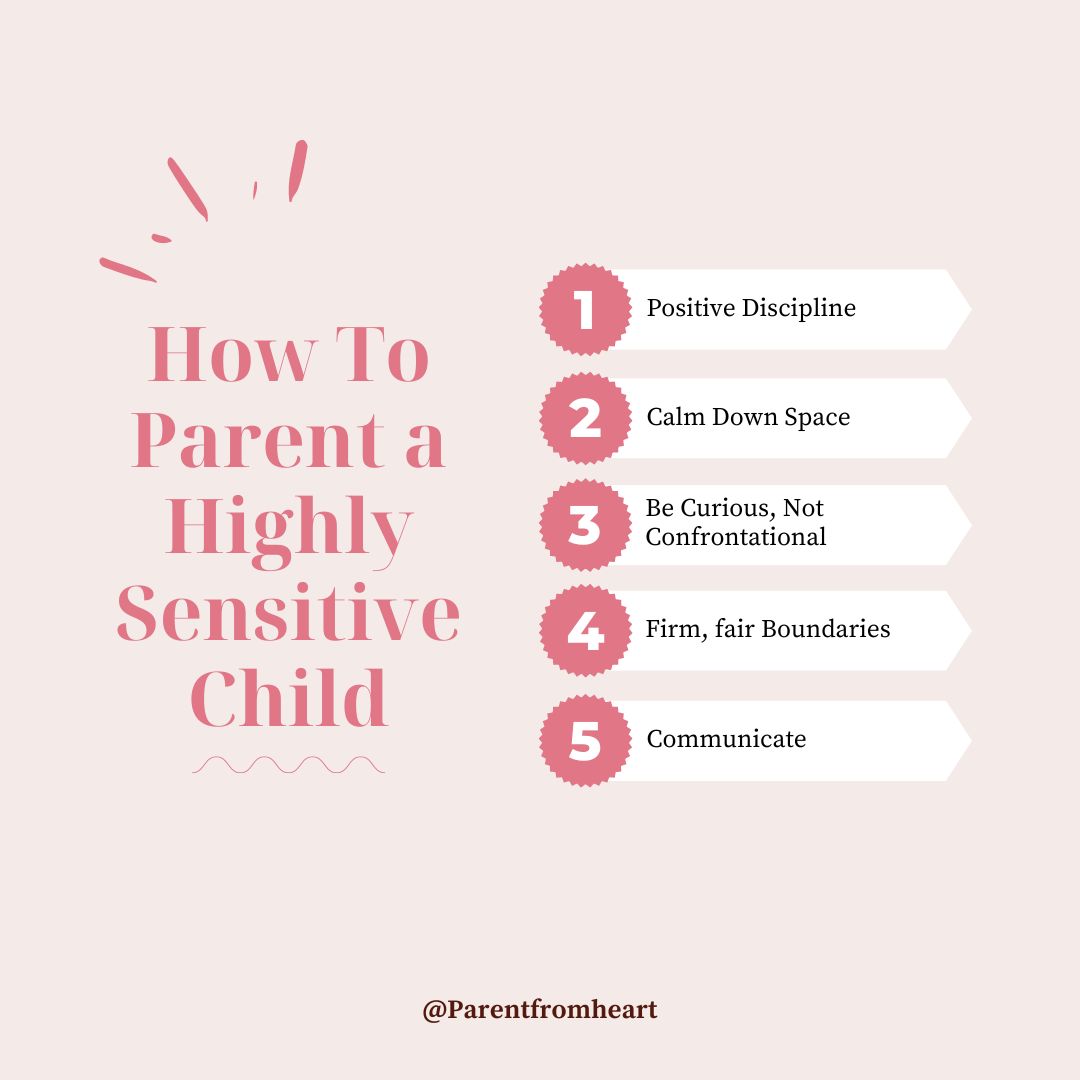
Positive Discipline
- Be mindful of your tone and avoid yelling. Your child’s behavior is a form of communication so you need to look for the emotion behind the action.
- Focus on connection before correction. You need to be your child’s calm space, not add to their dysregulation.
- Avoid blame and shame. Your child is already hard on themselves, and if they feel like you are disappointed or upset with them, it will damage their self-esteem.
Calm Down Space
Create a calm-down area in your home. This is a safe space where your child can go when they feel overwhelmed, and it’s not a punishment.
Include items like
- Sensory jars
- A weighted blanket
- A comfort toy
- Breathing cards
- A feelings wheel
Be Curious, Not Confrontational
Don’t add to your child’s dysregulation by engaging in conflict. It’s hard to know what they are thinking and feeling when they are having a meltdown. So, instead of assuming you know, approach the situation with curiosity. This holds space for your child to process their emotions without guilt or shame.
Remember, external behavior reflects internal dysregulation.
Firm, fair Boundaries
Kids need consistent boundaries to feel safe and secure. Your highly sensitive child likes to be in control, and knowing what is expected of them can help them manage their behavior and emotions.
Communicate
Highly sensitive kids get anxious in new situations, so chat with them beforehand and help prepare them. If you are going into a situation that you know will be triggering, discuss it with your child and go over coping strategies they can use.
Sometimes, just talking about what to expect can help them feel less anxious and handle the sensory onslaught better.
Parenting as a Sensitive Person

Parenting your sensitive child can be more challenging if you are a highly sensitive person yourself. I remember craving alone time and feeling completely overwhelmed with physical touch at the end of a long day.
Here are a few things that you can do to support your needs so that you can support your child.
- Prioritize your needs
- Get better sleep
- Communicate with your partner
- Discuss your needs with your family
- Implement a quiet time in your home at least once a day to give yourself space to recalibrate
Sensitivity is a Superpower
I grew up being told that I was being dramatic and overly sensitive. So, when I discovered that my child was highly sensitive, I knew I wanted to help him embrace his empathy and thoughtfulness rather than feel ashamed of his emotions.
Sensitivity is a superpower that allows kids to be creative, kind, and curious. Raising a sensitive child is daunting, but they deserve all the love and patience you can give them because your highly sensitive child will change the world one day.









